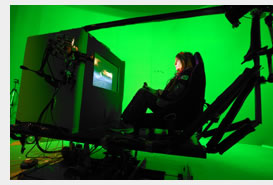Starfinder
(→Broadcast) |
|||
| Line 1: | Line 1: | ||
<div class="box"> | <div class="box"> | ||
| + | |||
== Host == | == Host == | ||
| Line 17: | Line 18: | ||
ITV has pulled out all the promotional stops for this series, and for good reason. The special effects are something quite amazing. They bring to mind the ill-fated series [[Scavengers]] in their depth and quality, though we do have to remember that the [[John Leslie]] vehicle is now nine years old. The set is large, with slides and remotely controlled doors and complex lighting. | ITV has pulled out all the promotional stops for this series, and for good reason. The special effects are something quite amazing. They bring to mind the ill-fated series [[Scavengers]] in their depth and quality, though we do have to remember that the [[John Leslie]] vehicle is now nine years old. The set is large, with slides and remotely controlled doors and complex lighting. | ||
| + | |||
| + | <div class="image">[[File:Starfinder radlite.jpg]]''Green screen mean''</div> | ||
Tom Zikas is the host: he has a mainly American accent, but with a trace of something from Central Europe. It's certainly an exotic voice, and fits the out-of-the-world nature of the show very well. Less impressive is the computer's voice, a dull monotone that hasn't advanced from early 1980s sci-fi programmes. | Tom Zikas is the host: he has a mainly American accent, but with a trace of something from Central Europe. It's certainly an exotic voice, and fits the out-of-the-world nature of the show very well. Less impressive is the computer's voice, a dull monotone that hasn't advanced from early 1980s sci-fi programmes. | ||
Revision as of 05:31, 4 January 2017
Synopsis
Four children are invited to spend a week aboard a space station, training to be an astronaut. They carry out drills involving practical skills, reactions, and hand-eye coordination. At the end of the week, the winning cadet will go to Star City in Russia for some real cosmonaut training.
Unlike any regular children's game show, Starfinder doesn't have some sort of points system for determining the winner. The person who does best at the training tasks won't necessarily be the winner. Instead, the contestant who most impresses the voting public will emerge triumphant. Children (and adults) send their votes via SMS and premium rate phone votes, or via the station's website.
ITV has pulled out all the promotional stops for this series, and for good reason. The special effects are something quite amazing. They bring to mind the ill-fated series Scavengers in their depth and quality, though we do have to remember that the John Leslie vehicle is now nine years old. The set is large, with slides and remotely controlled doors and complex lighting.
Tom Zikas is the host: he has a mainly American accent, but with a trace of something from Central Europe. It's certainly an exotic voice, and fits the out-of-the-world nature of the show very well. Less impressive is the computer's voice, a dull monotone that hasn't advanced from early 1980s sci-fi programmes.
The contestants aren't alone: a friend from home can talk to the contestants in their daily major missions. They act as a second pair of eyes, helping the contestant see things and not become overwhelmed by the experience.
Commander Zikas isn't completely impartial, on one occasion he spoke to camera to disagree with a contestant who blamed his playing partner for his poor performance. It's all about communication, said the Commander, a message borne out by the most successful candidate.
The games divide into two parts - one is a superior arcade game, one that vibrates the chair and gives realistic feedback, uses a realistic virtual reality glove, or a space suit, and some of the greatest computer simulations on display. The other games are practical, with robot arms and simple but effective reaction tests.
Starfinder fills a very peculiar space in the game show continuum. It's the first children's game show where the audience votes on the winner, but it's radically different from Big Brother and its clones. It has the competitive edge and clear fantasy element of Incredible Games, yet without the finale of the show with the talking lift. Indeed, Starfinder doesn't easily invite comparison with any other game show, primarily because there is no elimination, no overall scoring system, merely four contestants working together, working apart, and being judged by their peers.
Starfinder has to be appreciated on its own merits, and it will go down as a quietly radical departure from the game show norm.


